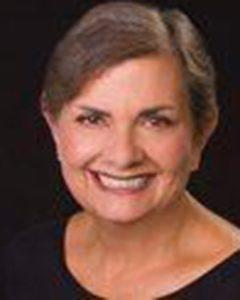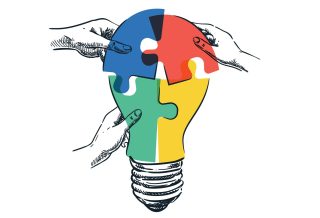FOCUS
On the path to 'becoming'
Awareness of their own mental models can help coaches stretch and grow
By Joellen Killion
Categories: Career pathways, Change management, Coaching, Implementation, Learning designsDecember 2019
Vol. 40, No. 6
Read the remaining content with membership access. Join or log in below to continue.
Sed ut perspiciatis unde omnis iste natus error sit voluptatem accusantium doloremque laudantium, totam rem aperiam, eaque ipsa quae ab illo inventore veritatis et quasi architecto beatae vitae dicta sunt explicabo. Nemo enim ipsam voluptatem quia voluptas sit aspernatur aut odit aut fugit, sed quia consequuntur magni dolores eos qui ratione voluptatem sequi nesciunt. Neque porro quisquam est, qui dolorem ipsum quia dolor sit amet, consectetur, adipisci velit, sed quia non numquam eius modi tempora incidunt ut labore et dolore magnam aliquam quaerat voluptatem.
Joellen Killion (joellen.killion@learningforward.org) is a senior advisor to Learning Forward.
References
Gilbert, D. (2014 March). The psychology of your future self. TED2014. Available at www.ted.com/talks/dan_gilbert_you_are_always_changing.
Popova, M. (2014a). The backfire effect: Why we have such a hard time changing our minds. Available at www.brainpickings.org/2014/05/13/backfire-effect-mcraney.
Popova, M. (2014b). Being vs. becoming: John Steinbeck on creative integrity, the art of changing your mind, the humanistic duty of the artist. Available at www.brainpickings.org/2014/12/15/john-steinbeck-integrity-lettuceberg.
Rao, S. (2006). Are you ready to succeed? Unconventional strategies to achieving personal mastery in business and life. New York, NY: Hyperion. Audiobook.
Schon, D. (1987). Educating the reflective practitioner. San Francisco, CA: Jossey-Bass.
Senge, P. (1990). The fifth discipline: The art & practice of the learning organization. New York, NY: Doubleday.

Joellen Killion is a senior advisor to Learning Forward and a sought-after speaker and facilitator who is an expert in linking professional learning and student learning. She has extensive experience in planning, design, implementation, and evaluation of high-quality, standards-based professional learning at the school, system, and state/provincial levels. She is the author of many books including Assessing Impact, Coaching Matters, Taking the Lead, and The Feedback Process. Her latest evaluation articles for The Learning Professional are “7 reasons to evaluate professional learning” and “Is your professional learning working? 8 steps to find out.”
Categories: Career pathways, Change management, Coaching, Implementation, Learning designs
Recent Issues
NAVIGATING NEW ROLES
April 2025
Whether you’re new to your role or supporting others who are new,...
LEARNING DESIGNS
February 2025
How we learn influences what we learn. This issue shares essential...
BUILDING BRIDGES
December 2024
Students benefit when educators bridge the continuum of professional...
CURRICULUM-BASED PROFESSIONAL LEARNING
October 2024
High-quality curriculum requires skilled educators to put it into...











